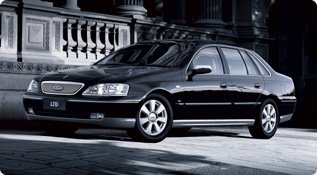
According to Stuff new large car sales have plummeted, because of petrol prices. From around 24% of the market in 2000 to 11% today, that's quite a shift - it may be because of demographics too (baby boomers kids starting to leave home, so large cars are less needed), but nevertheless consumers are reacting to market based price signals, and buying more fuel efficient cars because they want to.
.
Not because some nanny statist environmentalist wants them to, not because of some tax incentive, or preferential motor vehicle licensing fee or the rest, but because they want to.
.
Amazing really – a resource becomes more expensive and more scarce – the government and environmentalists worry themselves silly that it will run out and demand that something be done so people don’t keep “wasting it” – the price goes up, and consumers make their own judgment about whether they are willing to pay or not, and quite a few choose to save on fuel (buying smaller cars, catching public transport). Money goes from buying large cars and more petrol, to smaller cars and other things, or buses.
.
Planners can’t make this happen. It is the decisions of thousands weighing up how best to use their own money – and they happen to know better than the government.
.
Not because some nanny statist environmentalist wants them to, not because of some tax incentive, or preferential motor vehicle licensing fee or the rest, but because they want to.
.
Amazing really – a resource becomes more expensive and more scarce – the government and environmentalists worry themselves silly that it will run out and demand that something be done so people don’t keep “wasting it” – the price goes up, and consumers make their own judgment about whether they are willing to pay or not, and quite a few choose to save on fuel (buying smaller cars, catching public transport). Money goes from buying large cars and more petrol, to smaller cars and other things, or buses.
.
Planners can’t make this happen. It is the decisions of thousands weighing up how best to use their own money – and they happen to know better than the government.
.
Unfortunately, former Labour Cabinet Minister Peter Neilson (now Chairman of the Business Council for Sustainable Development) wants the government to use YOUR money to subsidise the price of buying new small efficient cars. Why should you, whether you own a car or not (and many don't), especially since most people don't buy brand new cars, subsidise those who do? Neilson calls for up to $3000 per vehicle. $3000!!! Money that you could spend on your kid's education, or shoes, or a holiday, or books, or a secondhand car. Hopefully the Greens will reject a subsidy for car ownership.
.
By the way I noted a report in the Times motoring supplement (not online) that sales of hybrid cars are declining, because motorists are increasingly wary of paying the premium for a car that isn't that much more fuel efficient than many new diesels - in addition, the resale value is poor.
No comments:
Post a Comment